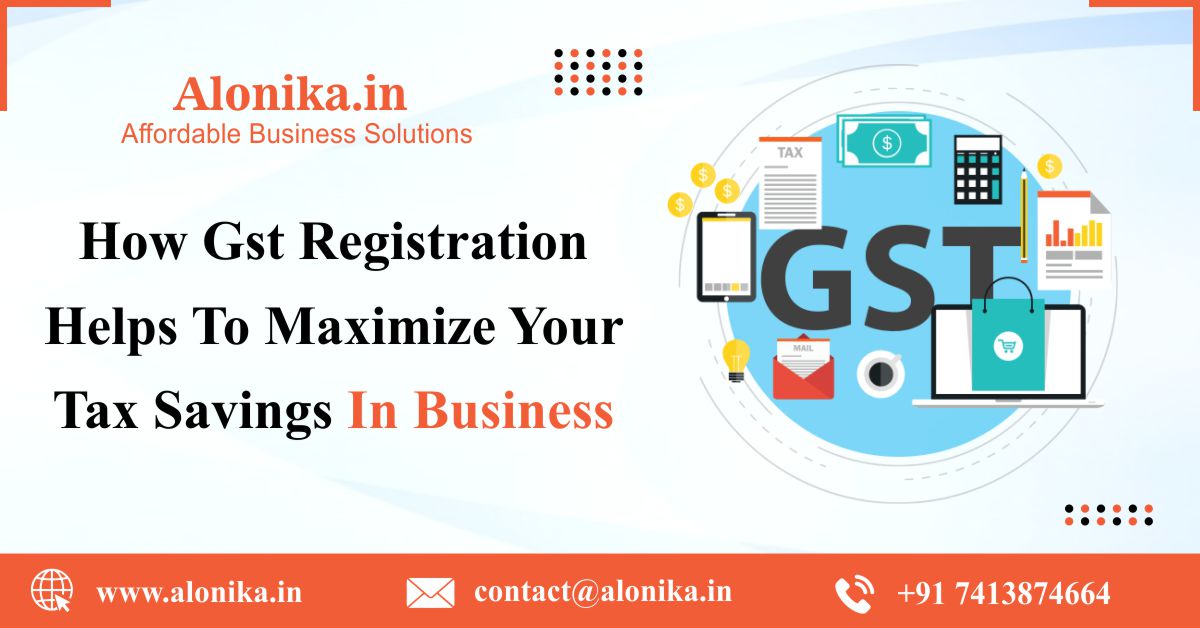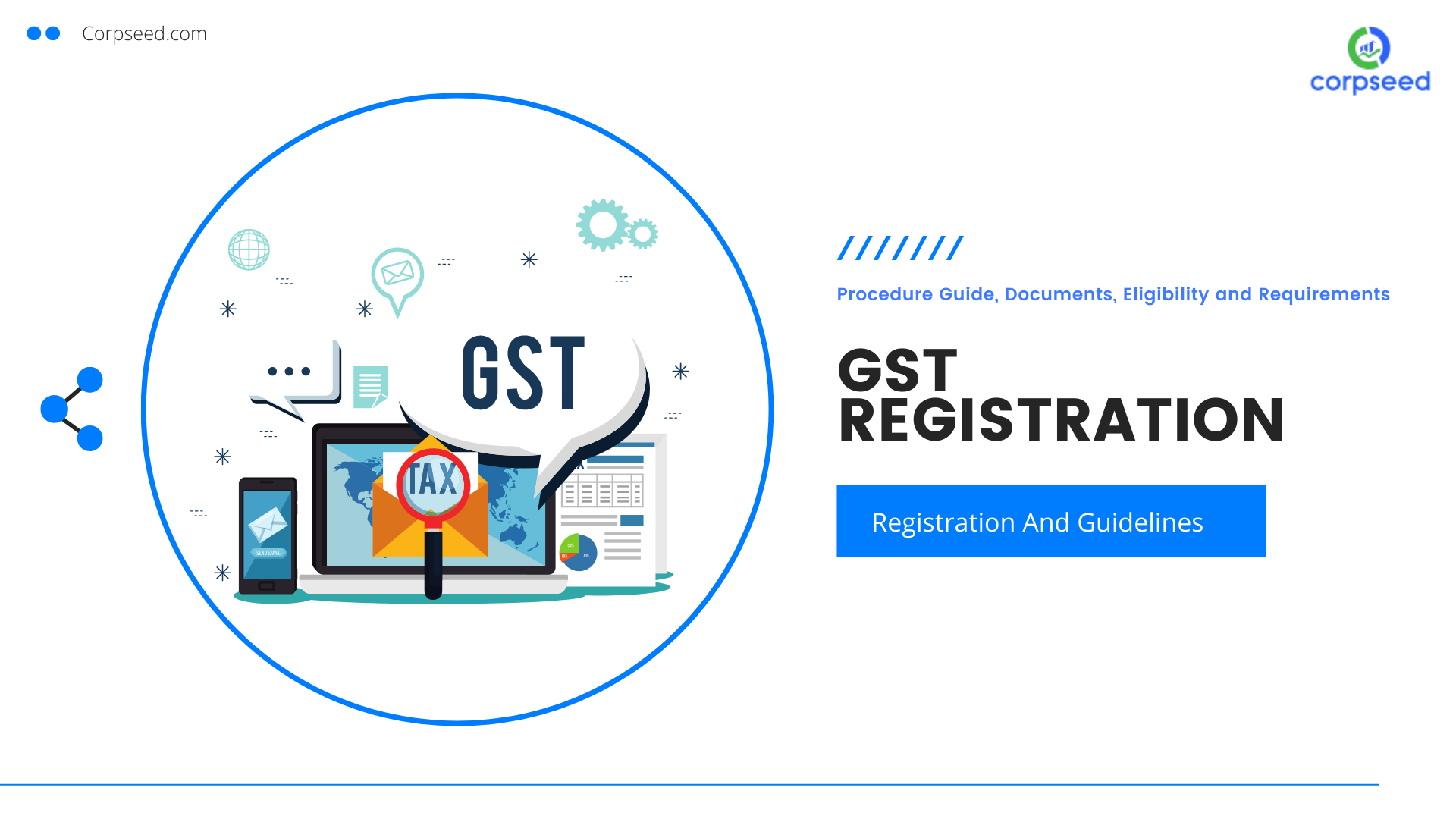Browsing the Complexities of GST Enrollment: Professional Tips and Ideal Practices for Smoother Conformity
Navigating the detailed landscape of Goods and Provider Tax Obligation (GST) registration demands an eager understanding of the evolving regulative structure and thorough attention to detail. As organizations strive to guarantee compliance and stay clear of challenges, expert assistance and best methods can work as indispensable compass factors in this facility surface. From decoding registration requirements to taking advantage of technical devices for structured procedures, the trip in the direction of smoother GST conformity is multifaceted and nuanced. Stay tuned to uncover vital methods and understandings that can aid organizations guide via the intricacies of GST enrollment with skill and self-confidence.
Comprehending GST Enrollment Demands

Along with turn over thresholds, organizations participating in interstate sales or offering taxed solutions may additionally be needed to register for GST, also if their turnover is listed below the recommended limit (Singapore GST Registration). Recognizing these thresholds and requirements is vital to stay clear of penalties and make certain smooth operations within the lawful framework
In addition, services must collect and prepare the required documents, such as proof of identification, address, company unification, and savings account information, before launching the GST registration procedure. Failing to supply precise details or satisfy the enrollment deadlines can lead to penalties or other lawful effects. As a result, businesses ought to stay notified concerning the particular GST enrollment needs applicable to their operations to keep conformity and avoid prospective concerns.
Organizing Necessary Documents
Businesses starting the GST enrollment procedure should thoroughly assemble and arrange the essential paperwork needed for entry. The vital documents usually required for GST enrollment consist of proof of company enrollment or address, identity and consolidation proofs of the company owners or partners, bank account information, evidence of primary location of company, and permission types. Making sure that these papers are easily available and arranged can improve the registration process and prevent hold-ups or beings rejected.
To effectively arrange important documentation, businesses need to develop a centralized system for storing and classifying the needed paperwork (Singapore GST Registration). Utilizing electronic storage solutions can aid preserve easy accessibility and make sure that files are securely saved. Furthermore, developing a checklist of all necessary records can offer as a valuable tool to track what has actually been gathered and what is still required for submission

Leveraging Innovation for Effectiveness
Enhancing functional efficiency with technical combination is extremely important for contemporary organizations navigating the complexities of GST enrollment. One go now of the key methods technology can help in GST enrollment is through the use of automated software services.
Furthermore, modern technology can help with smooth interaction with tax authorities. Online websites and interaction devices enable businesses to submit papers, resolve questions, and receive updates in a more effective fashion. This not just expedites the registration process however additionally aids in maintaining trustworthy and clear interaction with the relevant authorities.
Furthermore, cloud-based storage services offer a safe system for services to shop and gain access to their monetary information, making sure conformity with GST record-keeping demands. By systematizing information storage space and automating processes, companies can enhance their overall effectiveness and accuracy in GST registration treatments.
Proactive Conformity Surveillance

To make sure efficient proactive conformity monitoring, businesses must establish durable interior controls, conduct periodic audits, and utilize automation tools for real-time monitoring of GST transactions. Normal training sessions for workers on GST conformity demands can additionally assist in creating a culture of conformity within the organization. In addition, engaging with tax obligation specialists or experts can supply important insights and assistance on browsing complex GST laws.
Engaging With Specialist Consultants
Involving skilled tax professionals can considerably strengthen a company's understanding and conformity with detailed GST policies. Professional professionals bring a wealth of understanding and experience to the table, aiding companies browse the intricacies of GST registration easily. By leveraging their competence, firms can guarantee exact filings, minimize the danger of mistakes, and remain current with the current regulative adjustments.
When engaging with expert consultants, it is necessary to pick professionals with a strong track record in GST compliance (Singapore GST Registration). Try to find professionals that have a deep understanding of the relevant laws and guidelines, as well as experience dealing with companies in your industry. Efficient communication is key in this partnership, so make certain to clearly define your expectations and develop regular touchpoints to talk about development and attend to any type of worries
Moreover, professional specialists can supply useful insights and guidance on optimizing your tax strategy, identifying possible cost-saving possibilities, and simplifying your conformity procedures. Overall, spending in specialist consultancy services can go a lengthy method in making sure smoother GST compliance and avoiding pricey blunders.
Final Thought
To conclude, browsing the intricacies of GST registration requires a comprehensive understanding of the requirements, company of necessary paperwork, leveraging innovation for efficiency, aggressive compliance surveillance, and involvement with professional consultants. By complying with these best techniques, services can guarantee smoother conformity with GST guidelines and avoid possible charges or penalties. It is necessary to stay educated, positive, and diligent in handling GST registration to preserve compliance and maintain important link financial honesty.
To guarantee compliance with tax obligation regulations, organizations must completely recognize the complex needs for GST enrollment. Goods and Solutions Tax Obligation (GST) is a value-added tax imposed on the majority of products and solutions in a nation, making it vital for businesses to register for GST to stay clear of lawful repercussions.Moreover, organizations should gather and prepare the essential documentation, such as proof of identity, address, organization incorporation, and bank account details, prior to launching the GST enrollment process. Companies must remain informed regarding the certain GST enrollment demands relevant to their procedures to maintain compliance and prevent prospective problems.
The vital records generally needed for GST registration include proof of service enrollment or identification, address and unification evidence of the business proprietors or companions, financial institution account information, evidence of primary location of company, and permission types.